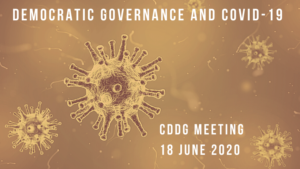The governments of Australia, Austria, Denmark, Germany, Iceland, Israel, New Zealand & Norway register the highest scores in our new index: they have performed best in managing the #public #health emergency caused by the #Covid19 pandemic. Find out more: https://t.co/J6GakcVeC2 pic.twitter.com/cX1DHfg0PQ
— The Economist Intelligence Unit (@TheEIU) June 17, 2020
The Covid-19 pandemic has kick-started a difficult global conversation about whether Western liberal democracies should radically rethink their relationships with China, an authoritarian regime upon whom many of these nations’ economies rely, CNN reports.
“I think with Covid we might be getting closer to a common European understanding of what China is and how it behaves,” said Lucrezia Poggetti, an analyst at the Mercator Institute for China Studies. “The Chinese government’s behavior in times of crisis raised eyebrows in Europe with its attempts to play European countries against each other and undermine democracies, for example through disinformation. And as it becomes more prominent in national political debates, Europeans might come to a deeper understanding of China,” she added.
 The Economist Intelligence Unit has constructed an index (above) to rank the quality of the policy response to coronavirus across 21 OECD countries. Countries are assessed against three “quality of response” criteria. Three mitigating factors adjust scores to take pre-existing risk factors into account. The resulting index shows which countries have so far managed the pandemic best, given their risk profiles, the EIU writes:
The Economist Intelligence Unit has constructed an index (above) to rank the quality of the policy response to coronavirus across 21 OECD countries. Countries are assessed against three “quality of response” criteria. Three mitigating factors adjust scores to take pre-existing risk factors into account. The resulting index shows which countries have so far managed the pandemic best, given their risk profiles, the EIU writes:
- The governments of Australia, Austria, Denmark, Germany, Iceland, Israel, New Zealand and Norway have performed best in managing the public health emergency caused by the pandemic.
- At the other end of the spectrum, Belgium, Italy, Spain and the UK record the lowest scores.
What will a post-pandemic world look like? On this we know least. But a few things seem plausible, writes FT analyst Martin Wolf:
- A first probable development is a shift away from the globalisation of things, in favour of more (though also contested) virtual globalisation….
- A second is the accelerated adoption of technologies that promise enhanced safety along with opportunities for greater social control. China is taking the lead. But other states are likely to feel entitled, perhaps even expected, to follow suit.
- A third is more polarised politics. The already established conflict between a more nationalist and protectionist right and a more socialist and “progressive” left seems likely to be exacerbated, at least in high-income democracies. …
- A fourth reality is that public debt and deficits will be far greater. There will also be little tolerance for another round of “austerity” or reductions in the level or growth of public spending. A greater likelihood is higher taxes….
- The final and most important reality is dreadful international relations. China has had a surprisingly good crisis, given that this is where the virus emerged. But China is also openly autocratic and internationally assertive…
 The pandemic in Africa will not be just a crisis of public health or the economy, according to Alan Doss, the outgoing president of the Kofi Annan Foundation, and Mo Ibrahim, the chairman of the Mo Ibrahim Foundation, which promotes leadership and good public governance in Africa. It risks becoming a political emergency that threatens the democratic progress that countries across the continent have made in recent years, they write for The Economist.
The pandemic in Africa will not be just a crisis of public health or the economy, according to Alan Doss, the outgoing president of the Kofi Annan Foundation, and Mo Ibrahim, the chairman of the Mo Ibrahim Foundation, which promotes leadership and good public governance in Africa. It risks becoming a political emergency that threatens the democratic progress that countries across the continent have made in recent years, they write for The Economist.







